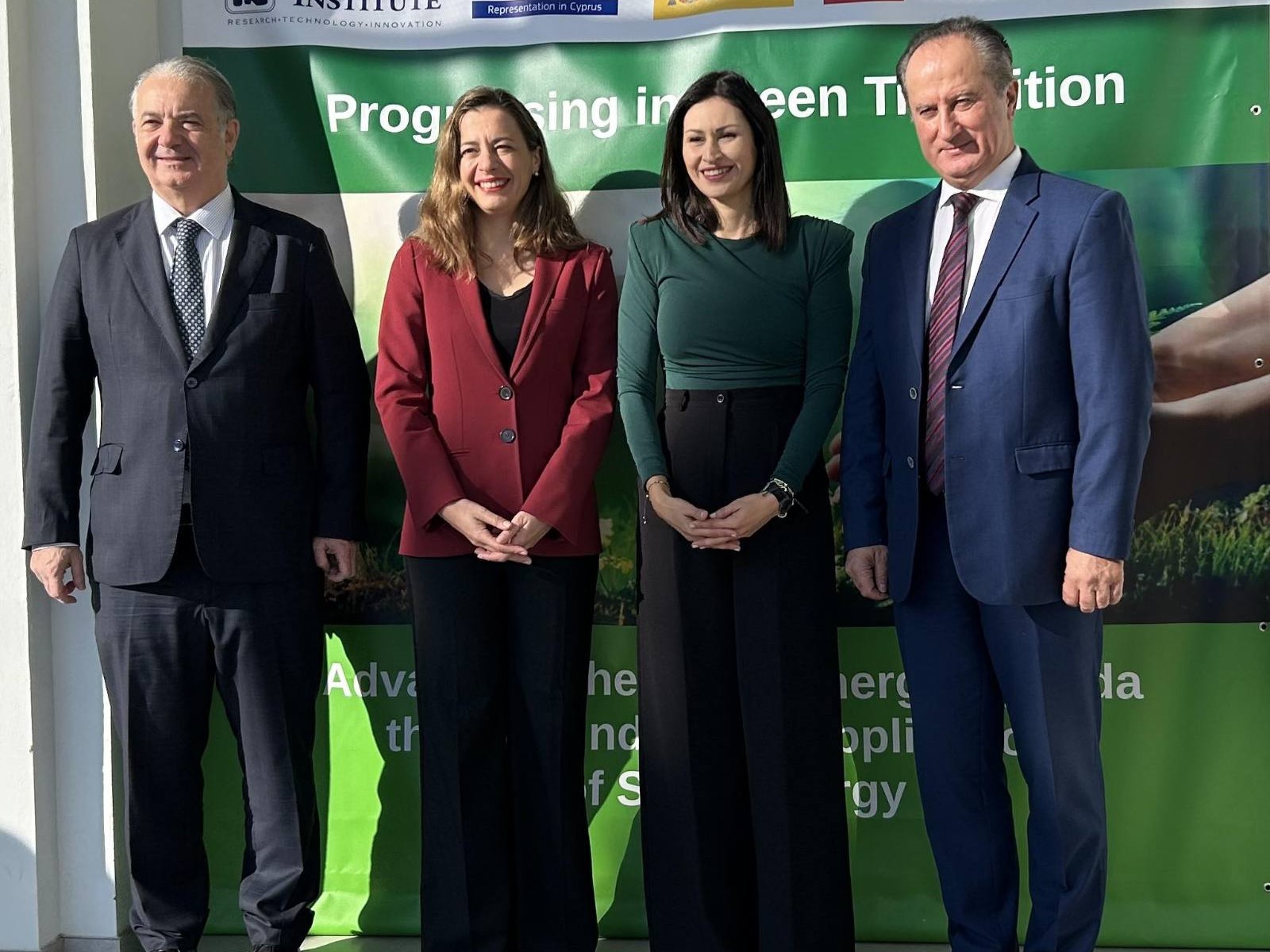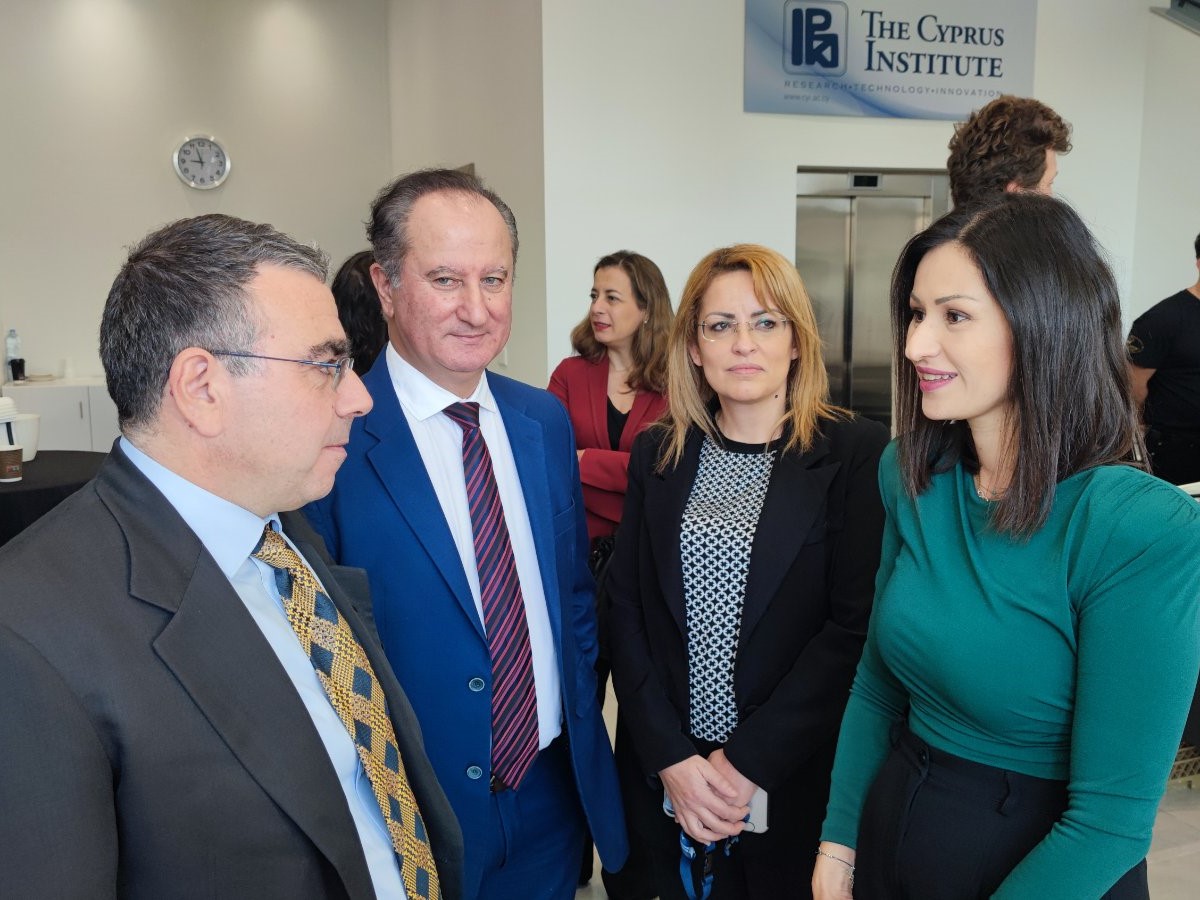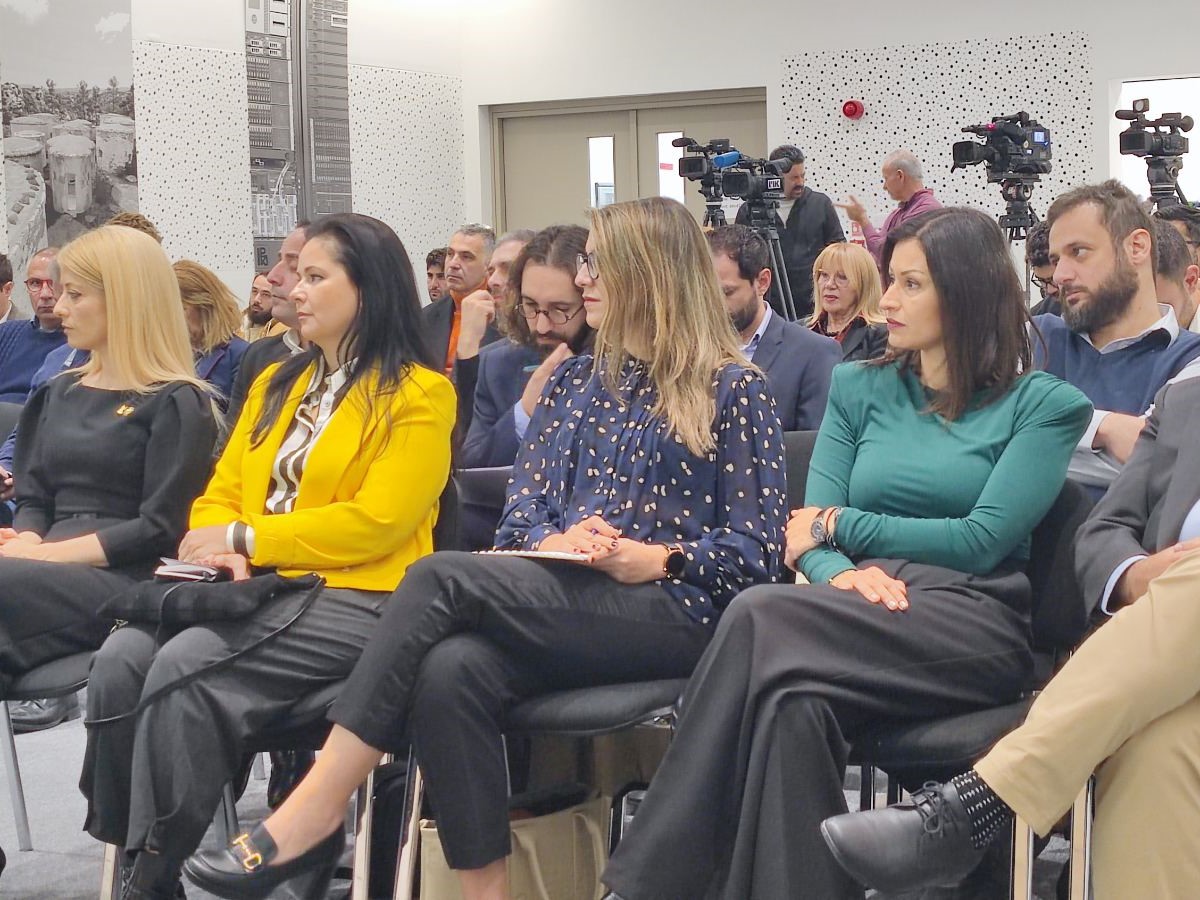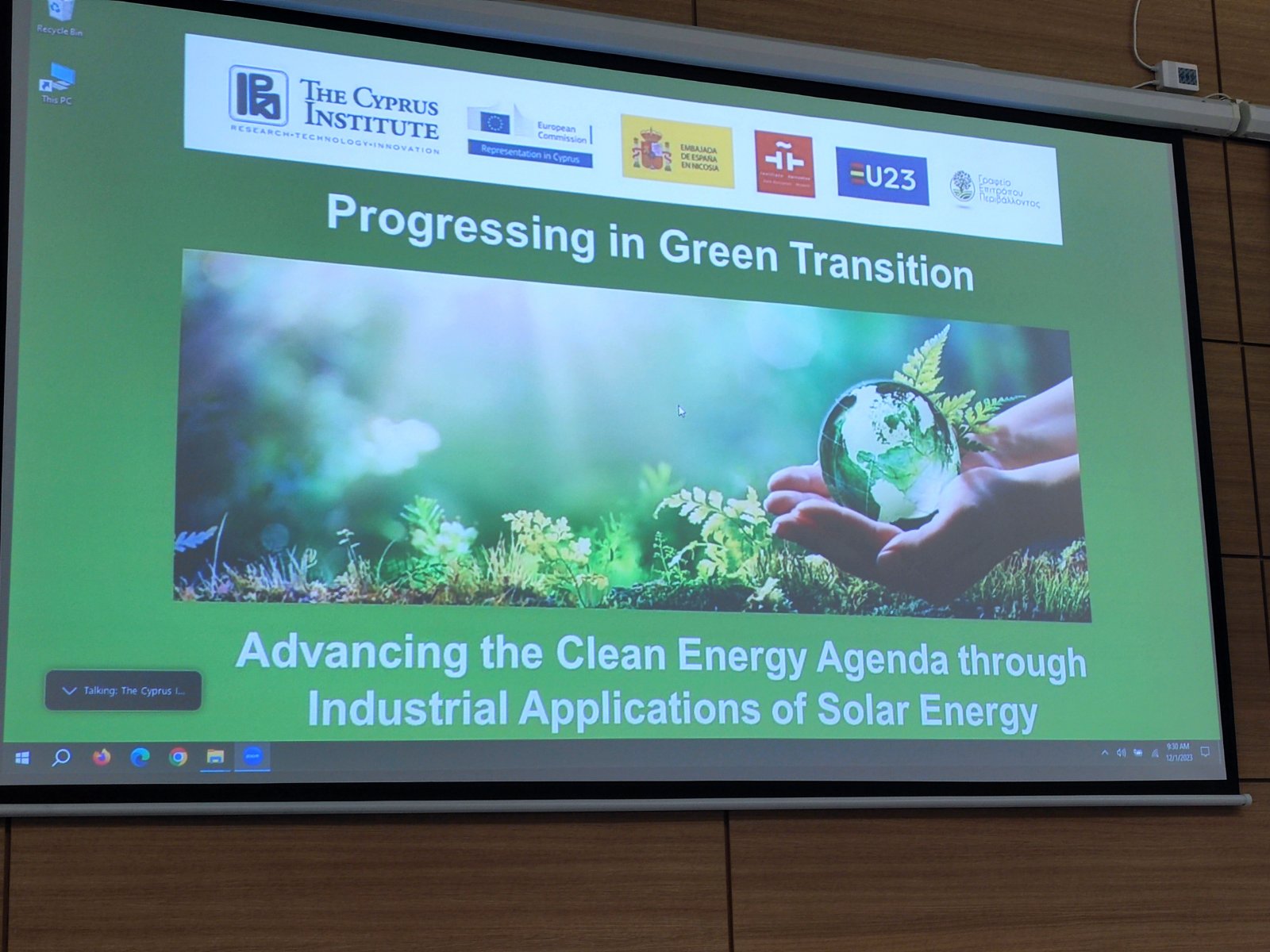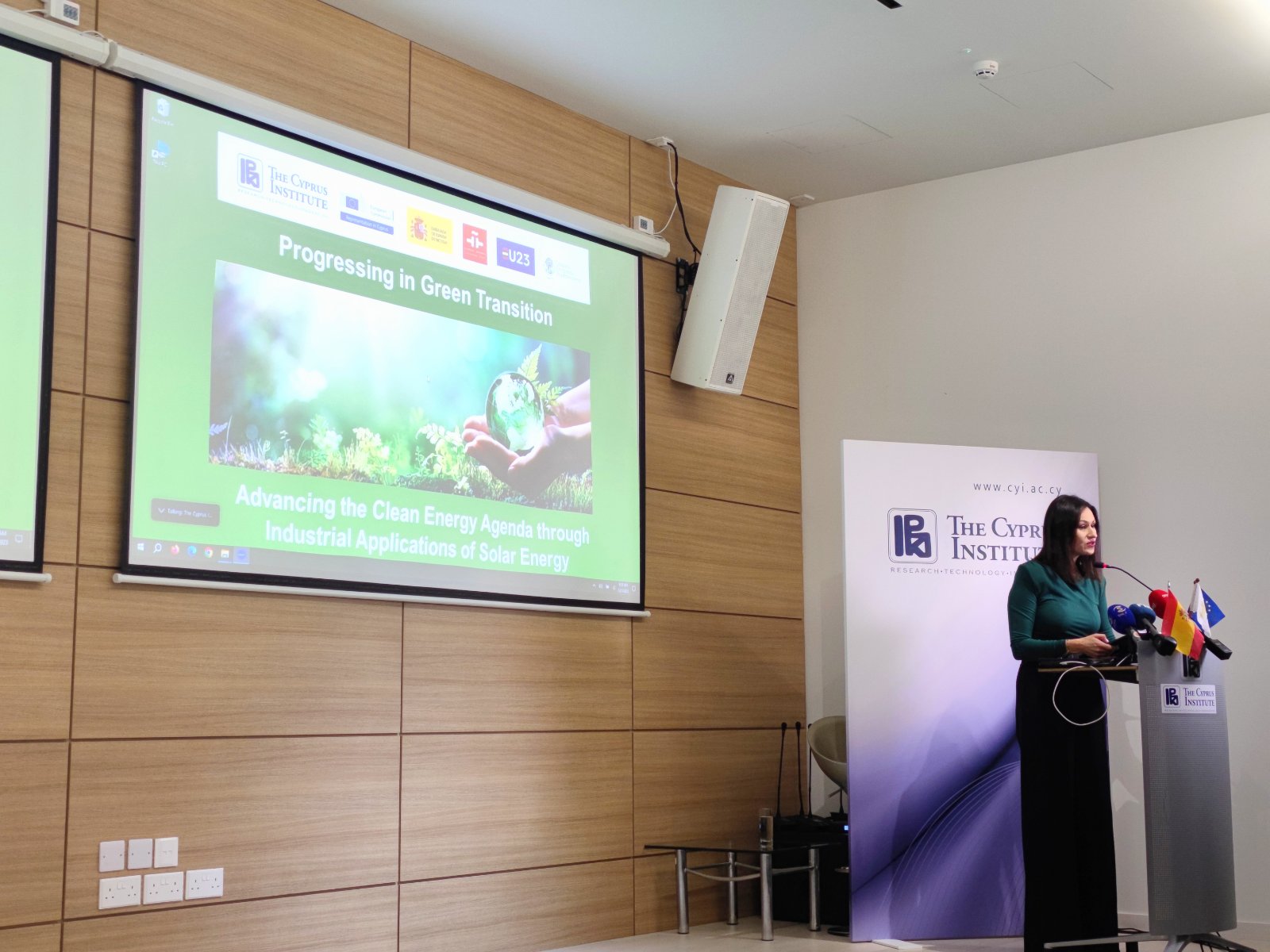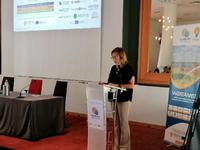Press Releases
01-12-2023 11:16
Address by the Commissioner for the Environment, Dr Maria Panayiotou, at the Cyprus Institute event on “Progressing in green transition: Advancing the clean energy agenda through industrial applications of solar energy”
It is my great pleasure and honour to address today’s event on “Progressing in green transition: Αdvancing the clean energy agenda through industrial applications of solar energy”, organised by the Cyprus Institute. Today’s event and the presence here of such distinguished speakers and audience signifies our collective commitment to progressing in the green transition.
I wish to extend my congratulations to the Cyprus Institute on the initiative of organising this event on this very topical issue. In an era where climate change poses a significant threat to our planet, and the world is struggling with the consequences of carbon-intensive practices, the need for a swift transition to renewable energy sources has never been more pressing.
However, it is crucial to acknowledge that our green transition should also embrace the principles of a circular economy and the reduction of electricity consumption. While we champion solar energy, we must also consider the lifecycle of solar panels. The International Renewable Energy Agency (IRENA) projects that, by 2050, solar panel waste could reach approximately 78 million tonnes globally (see here). This highlights the importance of developing effective recycling and repurposing strategies for solar PV panels, turning a potential environmental challenge into an economic opportunity.
Prof. Malas, thank you for the opportunity to be here and discuss with all stakeholders the progress made by Cyprus so far in meeting the objectives set by the European Union regarding the green transition, as well as the prospects of using solar energy in industrial applications.
As clearly stated in the programmme of governance of the President of the Republic, Mr Nikos Christodoulides, green transition is a top priority for the Republic of Cyprus, and the speeding up of this process is essential for the economy and society in general. Cyprus has committed itself to a green transition that not only promotes environmental sustainability but also fully utilises the economic benefits of renewable energy.
Renewable energy is sustainable and has a low environmental impact, thus is key to a greener and more resilient future. Unlike finite fossil fuel reserves, renewable sources such as solar energy offer a literally limitless and clean alternative. By utilising renewable energy, we do not only reduce our dependence on finite resources but also reduce greenhouse emissions that are responsible for global warming and climate change.
The European Union has set forth ambitious objectives for the green transition, urging member states to reduce their carbon footprint and embrace cleaner alternatives by promoting a massive investment in renewable energy. In March 2023, the EU agreed on stronger legislation to increase its renewables capacity, raising the EU’s binding target for 2030 to 42.5%, with the ambition to reach 45%, which would almost double the existing share of renewable energy in the EU.
Cyprus, as a member state of the EU, in order to support this green transition, must look at its own industry and find ways to capitalise on the untapped potential of renewable energy sources and of solar energy in particular.
One of our country’s greatest assets is the generous gift of sunshine that we enjoy throughout the year. Being blessed with abundant sunshine, Cyprus stands in a privileged position to utilise this natural resource and make significant steps towards its sustainability. By investing in solar energy we invest in cleaner air, healthier ecosystems, and a more sustainable country for generations to come. Solar power generation has minimal air and water pollution, mitigating the negative impacts associated with traditional energy sources. At the same time, solar energy improves energy security and economic stability. An energy portfolio diversification also protects the country from the volatility of global energy markets and geopolitical tensions.
However, in order for this shift towards cleaner, more sustainable practices to take place, renewable energy must also be embraced by the industrial sector. The adoption of solar energy in industrial applications is a strategic move towards ensuring long-term competitiveness and resilience. By integrating solar power, with photovoltaic systems and energy storage solutions, into industrial processes, we should be able to reduce reliance on traditional energy sources, mitigate operational costs, and, most importantly, minimise the environmental impact of industrial activities.
As the Spanish Presidency of the Council of the European Union has set advancing the green transition as one of its main priorities, today’s panel discussion with representatives of ministries, academic and research institutions, private companies and societal stakeholders, will focus on the lessons learnt from the Spanish experience so as to help advance solar energy deployment in the industry of Cyprus. I cannot emphasise enough the power of collaboration, which actually supports the attainment of the 17th Sustainable Development Goal for a sustainable future. Partnerships with other countries, international entities, businesses and research institutions further amplify our efforts. Together, we can create synergies that foster cooperation within the EU and commitment to the advancement of the clean energy agenda.
We look forward to learning from each other, sharing experiences and collaborating to promote the deployment of solar energy and other renewable energy resources in Cyprus. Renewable energy is good for the climate, good for Cyprus’s energy independence, and, moreover, it creates jobs, paving the way towards a sustainable future. Thank you for your commitment to this goal. I wish you all a successful meeting and fruitful deliberations.
(EN/EP)
Relevant Press Releases

